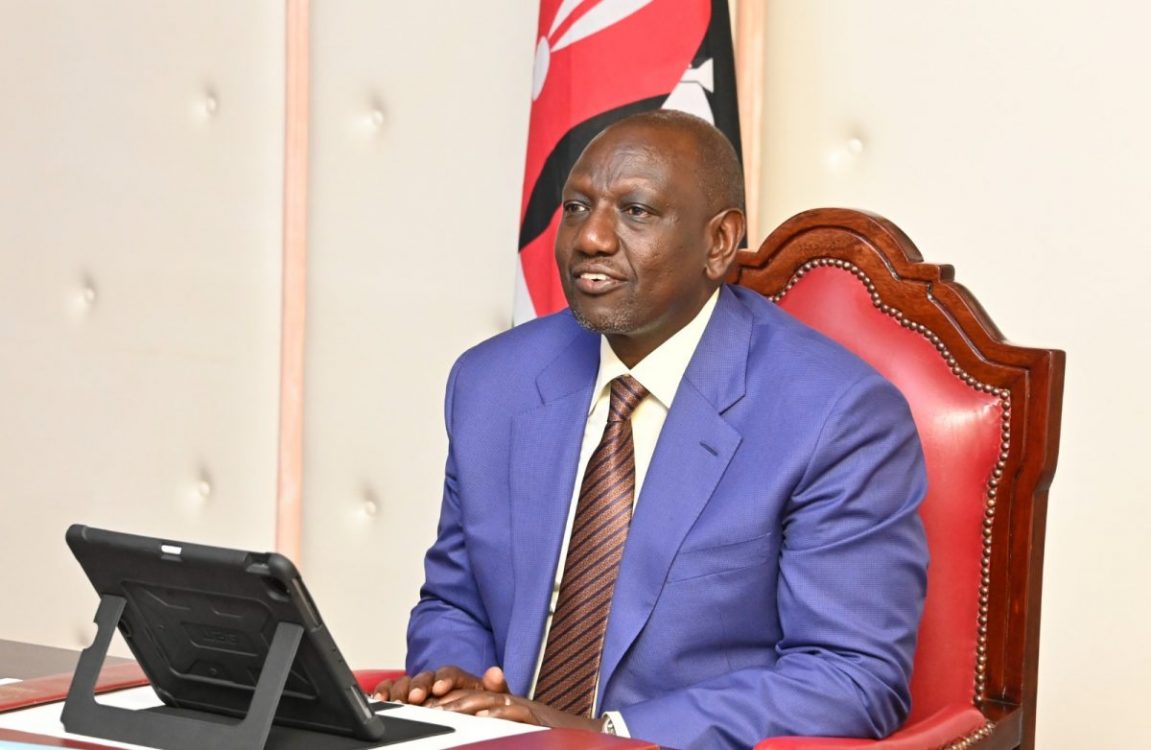Ruto set to meet governors today over Sh427b tiff
By Roy.Lumbe, February 10, 2023President William Ruto is this morning scheduled to chair a crucial meeting between the national government and governors in a bid to break a stalemate over the equitable share revenue and other burning issues.
The National and County Government Coordinating Summit (NCGCS) hopes to end a deadlock on the equitable share revenue, which has stalled most operations at the devolved units. The law provides that the NCGCS meets at least two times a year.
Also on the agenda of today’s meeting — which Ruto will be chairing for the first time as president — is establishment of the County Policing Authority, transfer of devolved functions such as agriculture, health, water, libraries and museums, and sharing, maintaining and management of resources such as roads and ports.
Sources told ‘People Daily’ that the summit — which is the apex body expected to ensure smooth operations of the two levels of government and brings together the presidency and governors — would also discuss the audited reports to be used to determine the equitable share revenue.
The two levels of government differed after governors maintained that the equitable share should be increased to Sh425 billion, from the current allocation of Sh370 billion, for the 2022/23 financial year.
Maximum Sh380b
The National Treasury has maintained that it can only increase the amount to Sh380 billion, while the Commission on Revenue Allocation (CRA) wants a Sh407 billion allocation.
The Intergovernmental Budget and Economic Council (IBEC), chaired by Deputy President Rigathi Gachagua recently, failed to end the stalemate, with the latter telling counties not to expect any more money above what the government has already offered.
The CRA has recommended that Sh8.7 billion be set aside for the Equalisation Fund for 2023/24 financial year, in line with Article 204 of the Constitution which provides for an allocation of 0.5 per cent of the most recent audited and approved accounts, amounting to Sh1.730.9 trillion.
The CoG has also protested delayed disbursement for November, December and January, saying counties cannot pay for drugs, water and electricity, and run development projects in critical areas such as roads and maternal healthcare.
By law, counties are entitled to at least 15 per cent of government-audited revenue.
Yesterday, CoG Vice-Chairperson Ahmed Abdullahi said the government has continued to punish counties through late and paltry allocations, an issue they will “no longer take lying down.”
“Delay to disburse funds, and cutting down on the anticipated amount, have become common. This time round, we are not going to dance to their tune,” he said.
Economy strained
But the governors’ hard stance could be complicated by an admission by National Treasury Cabinet Secretary Njuguna Ndung’u that the country’s economy is strained, lacking resources to finance key public expenditure.
Speaking in Mombasa on Tuesday, Prof Ndung’u said the country is in a financial hole and that the available resources are less than the listed expenses.
He asked all Kenyans, including governors and MPs, to be patient.
Prof Ndung’u’s disclosure dampens the hopes of millions of suffering Kenyans for a reduction in the cost of living.
On today’s meeting, Abdullahi said the governors would also demand that national government entities drop devolved functions, adding that counties have come of age and can deliver on their mandate.
Though President Ruto directed the establishment of the County Policing Authority, as required under Section 41 of the National Police Service Act, Interior Cabinet Secretary Kithure Kindiki is yet to operationalise it.
The authority, which should incorporate members of the county government, security bodies and citizens in security management at the county level, has been plagued by disruptions and delays since its gazettement in 2015.
The composition of the County Policing Authority includes the governor as chairperson, a representative of the National Intelligence Service, county representatives appointed by the Inspector-General, two elected members nominated by the county assembly, the chairperson of the County Security Committee, and at least six other members appointed by the governor.
The governors will also be pushing the Auditor General to expedite the auditing of accounts to enable CRA and Treasury to use the preceding year’s accounts to determine the equitable sharable revenue. Currently, the government uses the last audited accounts to determine the share. For example, it is using the audited accounts of 2019/2020 to determine the share for counties from the 2022/2023 budget of Sh3.8 trillion, which does not reflect
